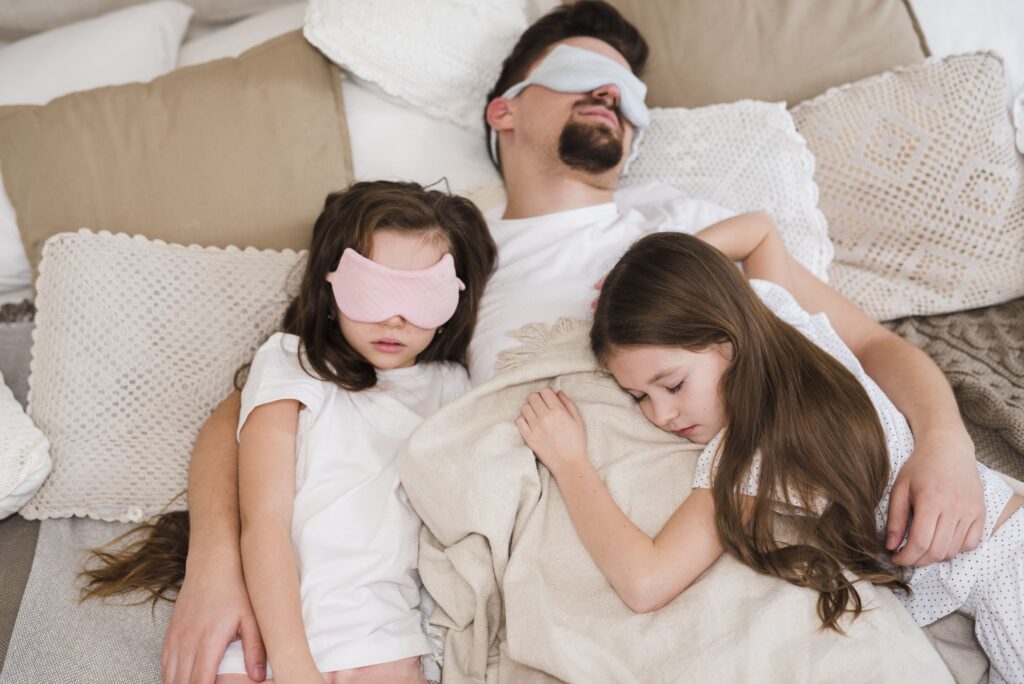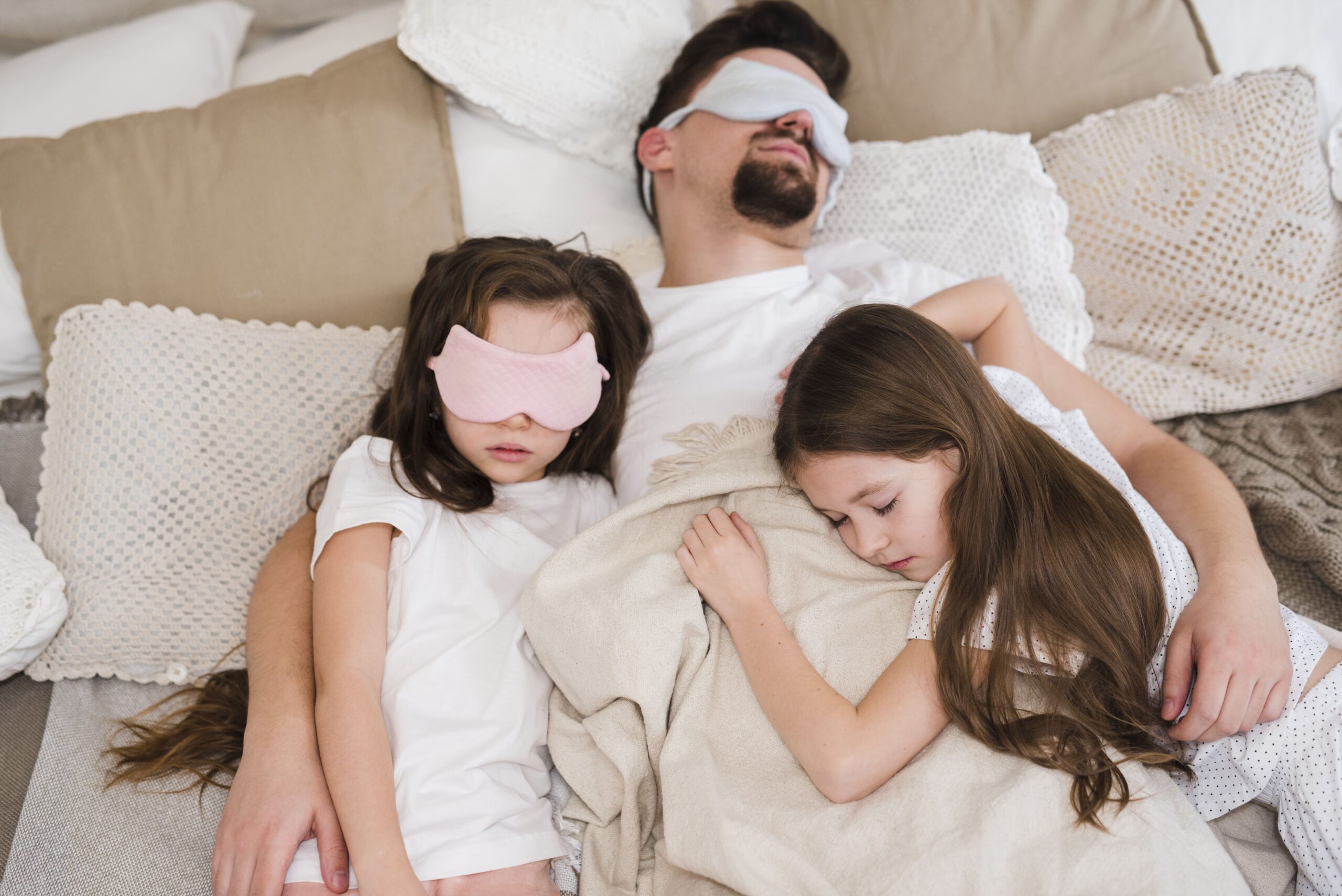Co-sleeping practices can vary as per the age of the parent and the child. It can significantly impact their sleeping behavior. The co-sleeping trends can vary from one culture to another. The west emphasizes more on inculcating self-reliance. Children belonging to countries in the west can be noticed sleeping in separate rooms starting from an early age. People belonging to the South Asian cultures promote parent and child co-sleeping habits.
The practice of co-sleeping is deep-rooted. It has now evolved into sleeping alongside others to enjoy feelings of safety and warmth. The sleeping behavior of people is influenced by the people nearby.
A study has revealed that animals who sleep in groups show co-sleeping habits similar to sleep patterns of animals around them. The study also explored the co-sleeping behavior of living beings across different ages.

Infants and Co-Sleeping
Co-sleeping among parents and children shared mixed feelings. The different perspectives of parents in Eastern and Western cultures play an integral role in co-sleeping. Parents can be seen co-sleeping with infants across South Asia, America, and Africa.
Researchers even pointed out the evolution of human sleeping. They shared how humans can enjoy feelings of utmost safety and protection with co-sleeping. It can improve the bond between parents and infants. Co-sleeping nurtures the emotional as well as mental health of parents and infants. The presence of a caregiver during co-sleeping can alleviate the stress of infants and parents significantly.
Parents in Western countries inculcate self-reliance among their children from the very beginning. Parents across the Western region have time and again expressed their concerns surrounding SIDS (Sudden Infant Death Syndrome) of co-sleeping infants. This is why many behavioural experts recommend sleeping apart rather than promoting bed-sharing sleeping habits. Acclaimed American organizations even recommend parents to sleep closer to their infants. Such sleeping habits can reduce the risk of SIDS to a greater extent.
Researchers have also expressed a different perspective when it comes to co-sleeping. They revealed that co-sleeping habits can limit feedings and promote lighter sleep. Infants who tend to wake up often can enjoy a better sleep and stay fuller for longer when they co-sleep with their parents. Infants can also develop better breathing control through co-sleeping habits.
Childhood and Co-Sleeping
Co-sleeping during childhood is not something new. Sibling co-sleeping during childhood is very common even today. Children with anxiety disorders, autism, and even chronic health concerns can benefit from co-sleeping. Many children find it exceptionally hard to sleep under certain health conditions. Co-sleeping can promote easy sleeping habits among children across the world.
Adulthood and Co-Sleeping
Couples can be seen sharing beds. Sleeping together no longer remains limited to romance and intimacy. Researchers revealed that women in heterosexual relationships experience low sleep quality. They found their partners’ movements in bed disturbing. Many couples have also been found to sleep better sharing a bed. Researchers also found that few couples enjoy lesser deep sleep with their partners than sleeping alone.

